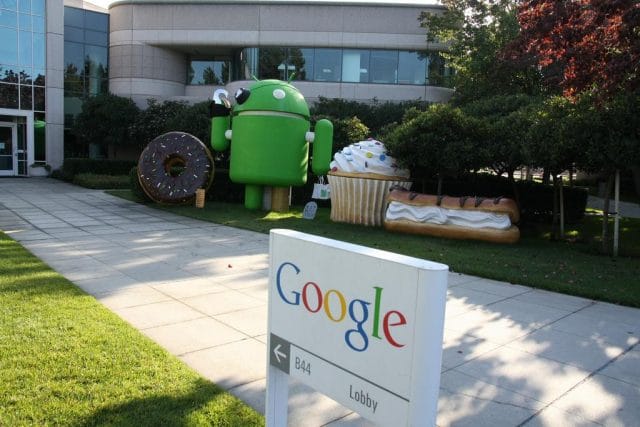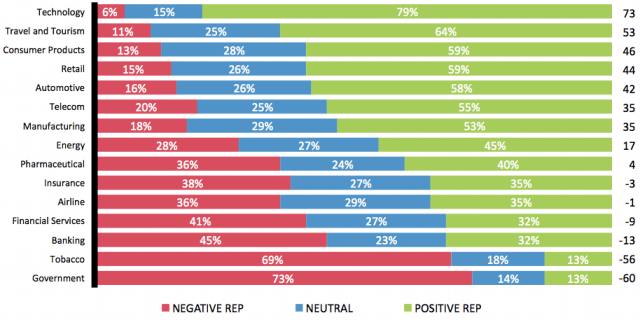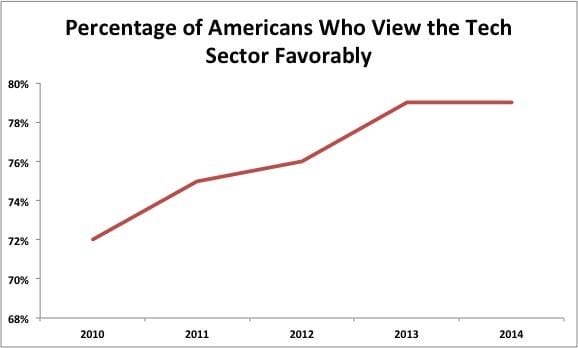
Photo credit: Kazuhisa Otsubo
Over the past year, the technology industry’s image has taken a beating.
Protesters surrounding the buses that whisk employees of Google and other tech companies from San Francisco to their Silicon Valley offices have become a routine media story ever since gentrification activists decided to target them. George Packer’s New Yorker article “Change the World,” like many accounts of tech culture, described Silicon Valley as an insular, self-absorbed, faux-visionary driver of inequality. Everyone asks if there is a tech bubble — that is when not excoriating tech firms for misogyny, a lack of diversity, and claiming to solve the world’s problems while actually solving the problems of “being twenty years old, with cash on hand, because that’s who [founds startups].”
A common charge against tech people is that its members live within a bubble where no one challenges them for classifying a new dating app as “innovation” or claiming that the connectivity of Facebook can prevent terrorism. But outside the bubble of critical media coverage of Silicon Valley — not all of which we agree with, to be clear — the technology industry is still widely admired. Insiders may snipe about Clinkle, a startup of young Stanford students that raised $30 million to reinvent how people pay for things yet has so far only released grandiose promises. But when outsiders think of Silicon Valley, they still seem to see Steve Jobs handing them an iPhone.
Every year, Harris Interactive surveys the American public on their feelings about high profile companies and different industries. Despite the battering Silicon Valley has taken in the media, the tech industry is regarded far more favorably than any other industry. When Harris asked people to “rate the overall reputation of the following industries,” 79% of those surveyed gave the tech industry a positive rating, while 15% felt neutral and only 6% rated it negatively.
Industry Reputation Ratings, 2014

Source: Nielsen, Harris Poll 2014 RQ® Summary Report
(For those who are curious, banking and financial services have made steady gains toward a better reputation since 2008, and government is regarded even more poorly than the tobacco industry.)
If we look at Harris’s results over the past 5 years, we see that the industry’s favorable reputation has only increased, although it was level over the past year. It’s hard to say whether that is a sign of bad press ending its rise in popularity, noise in the data, or simply a plateau at a very high level of favorability.

Data source: Nielsen, Harris Poll 2014 RQ® Summary Report
One possible explanation of the tech sector’s continued popularity despite a barrage of bad press is that the general public may not have as Silicon Valley-centric a view of technology as people who (like this author) have some connection to it.
It may also simply be that the wider public has not been exposed enough to the tech sector and the backlash against it to let it affect their regard for the industry. This author remembers a friend in Washington DC earnestly asking, “Did you know Snapchat doesn’t make any money even though it was offered $1 billion?” The honest answer was, “Yes. I hear that several times a day.” You forgot how little the rest of the world cares about the world you immerse yourself in; most people’s awareness of the tech sector involves downloading Lyft and buying a new phone — not hearing about Google bus protests and sexist jokes at TechCrunch Disrupt.
If the tech industry’s press remains this bad, of course, this won’t always be the case. Media is covering startups and tech culture more and more, and shows like HBO’s Silicon Valley are introducing its quirks to a wider audience. Silicon Valley’s and the technology industry’s sterling reputations are theirs to lose.
This post was written by Alex Mayyasi. Follow him on Twitter here or Google Plus. To get occasional notifications when we write blog posts, sign up for our email list.



